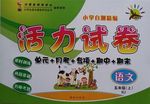题目内容
I was in a strange city I didn’t know at all, and what’s more, I could not speak a word of the language. On my second day I got on the first bus that passed, rode on it for several stops, then got off and walked on. The first two hours passed pleasantly enough, then I decided to turn back to my hotel for lunch. After walking about for some time, I decided I had better ask the way. The trouble was that the only word I knew of the language was the name of the street in which I lived, and even that I pronounced badly. I stopped to ask a newspaper-seller. He handed me a paper. I shook my head and repeated the name of the street and he put the paper into my hands. I had to give him some money and went on my way. The next person I asked was a policeman. He listened to me carefully, nodded and gently took me by the arm. There was a strange look in his eyes as he pointed left and right and left again. I nodded politely and began walking in the direction he pointed.
About an hour passed and I noticed that the houses were getting fewer and fewer and green fields were appearing on either side of me. I had come all the way into the countryside. The only thing left for me to do was find the nearest railway station.
1.The writer preferred to walk back to his hotel because_______.
A. he had no money to buy a ticket
B. he wanted to lose himself in the city
C. he tried to know the city in this way
D. it was late and there were no buses passing by
2.The newspaper-seller______.
A. didn’t know where the hotel was
B. didn’t understand what the writer said
C. could understand what the writer said
D. didn’t want to take the money from the writer
3.From the story we know that the policeman______.
A. was kind but didn’t understand the writer
B. told the writer where to take a train
C. knew what the writer really meant
D.was cold-hearted and didn’t help the writer
4.What can we learn from the last paragraph?
A. The writer got close to the hotel where he stayed.
B. The writer got to the hotel with the policeman’s help.
C. The writer found he was much farther away from the hotel.
D. The writer found the hotel in the direction the policeman pointed.
5.In your opinion, what was the writer’s real trouble?
A. He didn’t know the city at all.
B. He couldn’t speak the language.
C. He went too far in the wrong bus.
D. He followed the policeman’s direction.
1.C
2.B
3.A
4.C
5.B
【解析】
试题分析:作者来到一个陌生的城市,更糟糕的是,他不会说那里的语言。在城里转了一段时间之后,作者打算返回宾馆吃午饭。作者边走边问路,但因为语言不通,他未能找到回宾馆的路。
1.I had to give him some money and went on my way.”可知,作者身上带的有钱,排除A;根据第三行“then I decided to turn back to my hotel for lunch”可知,作者想返回酒店吃午饭,说明他不是想迷失在这个城市里,排除B;根据第四行“hotel for lunch”可知,作者下车时还不到中午,当时不可能没有公交车,排除D,故选C。
2.even then I pronounced it badly. ...I shook my head and repeated the name of the street and he put the paper into my hands.”可知,作者不会讲当地的语言,卖报的人听不懂他说的话,误以为他要买报纸,故选B。
3.He listened to me carefully, nodded and gently took me by the arm.”可知,那个警察很友好;根据第一段最后“There was a strange look in his eyes as he pointed left and right and left again.”和第二段“I had come all the way into the countryside.”可知,警察不明白作者说的什么,他给作者指的方向是通往乡下的,而不是回宾馆的路,故选A。
4.I had come all the way into the countryside.”可知,作者在朝着乡下的方向走,他离城市越来越远了,故选C。
5.
考点:故事类短文阅读

 活力试卷系列答案
活力试卷系列答案 课课优能力培优100分系列答案
课课优能力培优100分系列答案